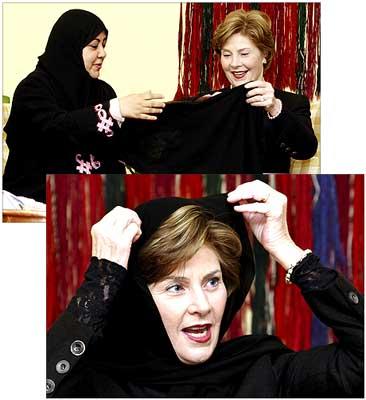Neighbouring Continents — Worlds Apart
Gordon Brown, his proxy Baroness Amos, and the leaders of Africa may be too weak to stand up to Robert Mugabe, but at least the German Chancellor Angela Merkel has spoken out against Zimbabwe's dictator, who has been in Europe this weekend for the EU-Africa summit, despite having been banned from entering the EU since 2002:
"The current state of Zimbabwe damages the image of the new Africa. Because this is so, we must take the chance here, in this framework, to put all our efforts together into strengthening democracy.Not that such words will make any more of a difference than our own Prime Minister's boycott of the meeting. Especially considering how South African President Thabo Mbeki is reported to have accused Merkel of being out of touch with the political situation in Zimbabwe. Quite what situation he was thinking of is anybody's guess — perhaps that of Zimbabwe as a world leader, with the world's highest inflation rate (what is variously reported as 8,000-15,000%), highest death rate (21.76 deaths/1,000 population — more than that for Sudan (14.39) and Iraq (5.26) combined!), highest number of AIDS orphans (1.6 million, almost one in four children, have now lost at least one parent to HIV), highest unemployment (at least 80%), and fastest-shrinking economy?
"We don't have the right to look away when human rights are trampled on. Intimidation of those with different opinions and breaches of the independence of the press cannot be justified."
Unsurprisingly, the summit in Lisbon has now ended without any agreement being reached on the key issue of trade. The EU wants to replace expiring trade accords with temporary Economic Partnership Agreements by the end of the year, when a waiver by the World Trade Organisation on preferential trade arrangements for developing countries expires. However, anti-poverty groups have criticised the EPAs for failing to provide protection for Africa's poor farmers and its fragile industry.



 Every Saturday afternoon for the last five years, protestors have held a vigil outside the Zimbabwe Embassy in the Strand — with its colourful banners, singing and dancing, the group is easy to spot and welcomes new members! Tomorrow we will join one of the largest demonstrations ever to mark five years of protest against human rights abuses by the Mugabe regime and to campaign for free and fair elections in the country. Along with the
Every Saturday afternoon for the last five years, protestors have held a vigil outside the Zimbabwe Embassy in the Strand — with its colourful banners, singing and dancing, the group is easy to spot and welcomes new members! Tomorrow we will join one of the largest demonstrations ever to mark five years of protest against human rights abuses by the Mugabe regime and to campaign for free and fair elections in the country. Along with the  As with the
As with the  The Shadow Foreign Secretary has endorsed
The Shadow Foreign Secretary has endorsed ![We know why you're in South Africa - Life in Zimbabwe is murder these days - Use your vote [Credit: Sokwanele]](http://farm2.static.flickr.com/1239/1366411450_320a35827e.jpg?v=0)

![The Dalai Lama and Angela Merkel [Spiegel Online: China's Neurotic Petulance over Tibet]](http://www.spiegel.de/img/0,1020,976235,00.jpg)
![Thousands of Buddhist monks marching in defiance of Burma's oppressive military regime [Credit: TIME]](http://img.timeinc.net/time/daily/2007/0709/monks_burma_0919.jpg)


![Welcome to Great Britain: Rolling out the red carpet [based on cartoon at the Intrepid Liberal Journal]](https://blogger.googleusercontent.com/img/b/R29vZ2xl/AVvXsEhNNmza796TUUnIYDWS77HNpMNcx43BvYbxxLTUei8pbYbtSdgS_VWJKN1A3tcBiDtUgVP-sQhgq3H_ujJUe2onoHj9pNKNXHSIMfBP8WHK0awp8xRSW5vDRLGOkBx3PTG-Y4-8taNdV6Ti/s400/immigration.jpg)

